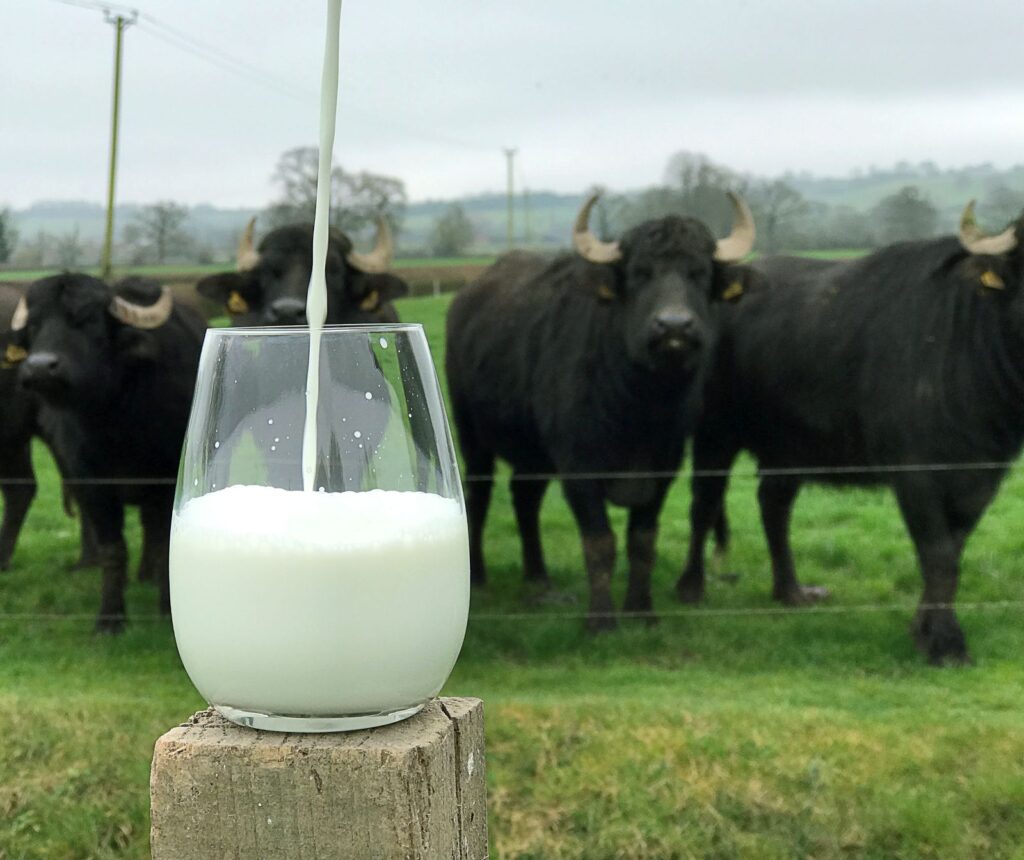Cow or Buffalo Milk Before Bed? What’s Really Better for Your Body at Night

Cow or Buffalo Milk Before Bed? What’s Really Better for Your Body at Night
A warm glass of milk before bedtime has long been a go-to for winding down after a busy day. But when it comes to choosing between cow’s milk and buffalo’s milk, many are unsure which is actually better for nighttime consumption. While both are nutritious, their properties — from digestion to energy impact — differ in ways that matter more than you might think, especially when consumed before sleep.
According to both modern nutritional research and Ayurvedic tradition, cow’s milk is lighter and easier to digest than buffalo’s milk. It contains less fat (about 3–4%), fewer calories, and smaller fat globules, which allows the body to process it more efficiently, especially in the evening hours. Cow’s milk also contains tryptophan, an amino acid that plays a role in promoting melatonin and serotonin production, the hormones linked with improved sleep. This makes cow’s milk a preferred option for those looking to relax, de-stress, and support better sleep quality naturally.
Buffalo’s milk, in contrast, is richer in both fat (around 6–8%) and protein — in fact, it has about 11% more protein than cow’s milk. Because of this, it offers higher energy and calorie content, making it ideal for people who engage in physically demanding work or need to gain weight or muscle mass. However, the same density that makes it energizing also makes it harder to digest, particularly at night when the body’s digestive activity naturally slows down. Consuming buffalo milk too close to bedtime could lead to a feeling of heaviness or discomfort for some people, especially those with weaker digestion.

In Ayurvedic terms, cow’s milk is known for its cooling and calming properties. It is believed to help balance Vata and Pitta doshas, both of which, when aggravated, can lead to restlessness, anxiety, or insomnia. This is why cow’s milk is traditionally recommended in Ayurveda for night-time consumption, particularly when warmed and optionally spiced with ingredients like cardamom or turmeric.
Buffalo’s milk, on the other hand, is considered more Kapha-promoting — heavy, slow-moving, and building in nature. While it is also considered nourishing and strength-giving in Ayurveda, it’s often suggested for daytime use or for individuals with high physical needs. Its dense composition makes it unsuitable for people with sluggish digestion or those prone to sinus congestion, which can be exacerbated at night by Kapha imbalance.
So, if your goal is to support deep sleep, improve digestion, and avoid night-time discomfort, cow’s milk is generally the more suitable option. But if your needs are centered around physical recovery, energy replenishment, and muscle building, and you have a strong digestive system, buffalo milk may offer added benefits — preferably consumed earlier in the day.

Cow Milk vs. Buffalo Milk – Night-Time Comparison
Fat Content:
Cow milk contains about 3–4% fat, making it lighter, while buffalo milk has a higher fat content of around 6–8%, making it heavier.
Protein:
Buffalo milk has approximately 11% more protein compared to cow milk.
Digestibility:
Cow milk is easier to digest, especially at night, whereas buffalo milk takes longer to digest due to its richness.
Effect on Sleep:
Cow milk promotes calmness and supports better sleep quality; buffalo milk can feel heavy and may cause discomfort if consumed close to bedtime.

Ideal For:
Cow milk suits people with lighter digestion, those experiencing sleep issues or stress; buffalo milk is better for physically active individuals or those needing strength and weight gain.
Best Time to Consume:
Cow milk is best consumed at night, ideally warm; buffalo milk is more suitable during the morning or daytime.
Disclaimer: The content provided here is for general health awareness and educational purposes. Dietary needs vary from person to person based on health conditions, metabolism, age, and activity levels. It is always best to consult with a certified medical practitioner or nutritionist before making any dietary changes, especially if you have allergies, lactose intolerance, or digestion-related concerns.












